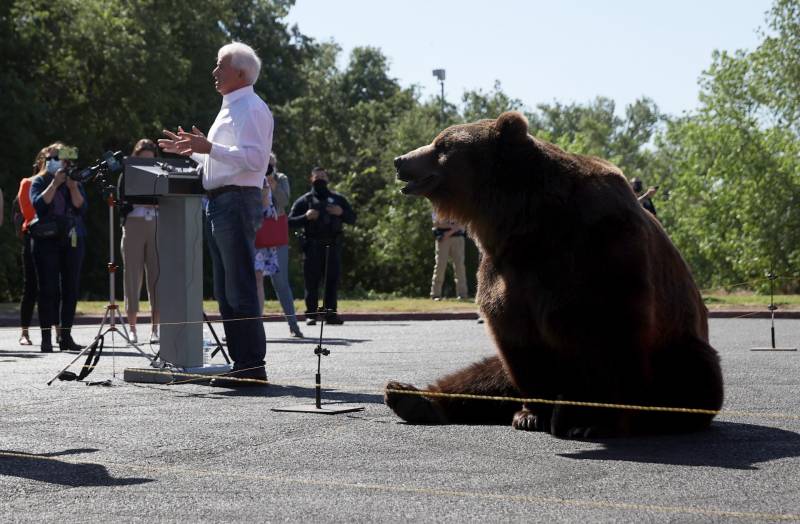For all the hoopla that has surrounded the campaign to recall Gov. Gavin Newsom from office, like the entry into the race of a high-profile reality TV star to press conferences with a live bear, one thing has remained virtually unchanged: California voters are disinclined to support removing Newsom from office.
In a new poll by the UC Berkeley Institute of Governmental Studies, the percentage of registered voters saying they’ll vote yes on the recall is 36%, precisely where it was in their previous poll taken in late January.
And that spells trouble for Newsom’s challengers. Not even a 1,000-pound bear managed to push that needle.
“Thirty-six percent is a long way from the 50 percent-plus-one that they’d need to remove him from office,” said Mark DiCamillo, Berkeley IGS Poll director. “There hasn’t been any movement up on the yes recall vote. So I guess that is good news” for Newsom.
The only real change from the January poll conducted by IGS is that the “no” vote ticked up slightly, from 45% to 49%. Fifteen percent in the current poll are undecided.
